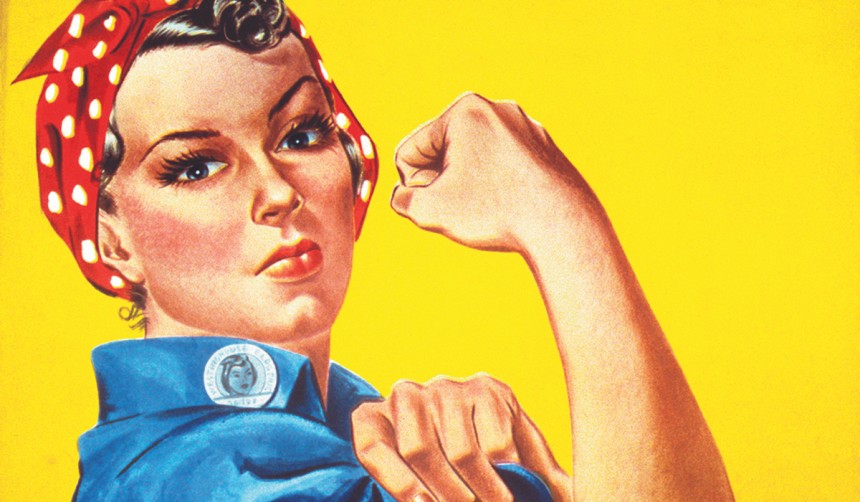
March 20, 2015
International Women’s Day
Looking at the road ahead
International Women’s Day is celebrated annually on March 8, an event started in 1909 to celebrate women’s achievements and to promote global gender equality. This year’s theme was, “make it happen.”
While significant gains have been made over the last century in many developed countries, gender equality still has a long way to go. Tangible differences exist in women’s healthcare for both physical and mental issues, rights, wages, maternity care, and jobs.
Causes of Depression
Sexual and intimate partner violence occurs in large numbers in every country. Over one-third of all women worldwide will experience sexual or intimate violence in their lifetime. Rates of depression in women were found to be three to four times higher in those who were exposed to sexual trauma during childhood, or physical abuse or intimate-partner violence in adulthood.
Experiencing domestic violence puts victims at further risk for unintended pregnancy, HIV infection, alcohol abuse, suicide, long-term physical injury, and death at the hands of their partner—the killer in 38 percent of all female murders.
Research shows that following rape, one in three women will develop post-traumatic stress disorder (PTSD). Depression is the most common mental health problem for women and often leads to suicide—a leading cause of death for women under 60.
Mental Health
Stigma surrounding mental health issues creates the greatest barrier to receiving help and promoting recovery. Mental illness remains highly stigmatized in Japan. Many Japanese believe recovery from mental illness is not possible, that it comes as the result of personal weakness or character flaws, rather than biology.
Finding HELP
Fifteen years ago, I moved to Asia, and twelve years ago to Japan as a trailing spouse. In Asia, my career as a neuropsychologist drew to an abrupt halt due to licensing and registration requirements. Like many foreign women in Japan, I found my work options were limited or non-existent in my profession; so I focused on being a mother and being in a new country.
In 2004, I hit a low point when my daughter returned home for university. I realized everyone was moving forward with their lives except me. It was then that I found TELL, and my life just keeps moving forward; from a volunteer phone counselor, to assistant director, practicing therapist, to Lifeline director. Over the years, I’ve spoken to hundreds of women—both western and Japanese returnees—who applied for the training because they were lost and wanted to feel valued again.
Like those who supported me, I’ve supported many through career changes, and encouraged others to reach for bigger goals. Through TELL, I’ve been able to join forces with other organizations and help make noise about domestic violence, sexual assault, human trafficking, and a range of other issues affecting women’s lives and mental health in Japan.
Making it Happen
For four days (March 22-25), Tokyo will host the 6th World Congress on Women’s Mental Health. Focusing on trauma, depression, and resilience, the event is organized by the International Association for Women’s Mental Health.
The Global Gender Gap Index 2014, compiled by the World Economic Forum, ranked Japan 104th out of 142 countries. Helping sensitize women to mental health issues and giving them the confidence to seek assistance is vital. Gender inequality, lower wages, and difficulty in obtaining full-time employment after giving birth can all impact women’s ability to divorce or escape abusive relationships.
More investment is needed, both on a global level and in Japan, to prevent violence against women and girls. National campaigns addressing mental health issues and educational programs at community, business, and governmental levels are desperately needed to improve Japan’s Global Gender Gap ranking. The benefits would be felt by not only women, but also their families and ultimately the country. All girls and women should have the right to a life free from violence, to contribute equally in society, and receive equal pay.
This month, TELL is making a noise about women’s mental health issues. Help us raise awareness of women’s rights issues in Japan, make change happen, and invest in the future.
The following organizations offer various forms of support and counseling, as well as assist those wanting to help:
TELL
An accredited non-profit organization providing a wide range of services to the international and Japanese communities, including a crisis support line, face-to-face counseling, child protection, and suicide prevention, 9am to 11pm, 365 days a year.
Tel: 03-5774-0992. www.telljp.com
Resilience
A non-profit organization specializing in support for victims with emotional scars stemming from harassment or bullying at home or in the workplace, as well as providing workshops, lectures, and training sessions. In Japanese only.
http://resilience-jp.heteml.jp
Kapatiran
A free counseling service dealing with everything from legal to domestic issues, catering primarily to Filipino citizens living and working in Japan.
Tue & Sat, 11am-4pm. Tel: 03-3432-6449.
E-mail: kapatiran.tko@nskk.org. http://kapatiran.jp/?lang=en
For Empowering Women (FEW)
A non-government, business and social networking organization helping women professionally and personally, focusing on career development, social and volunteer activities, etc.
www.fewjapan.com
Lighthouse
A non-profit organization providing support and counseling for victims of abuse in Japan, as well as offering education and training for counselors. In Japanese only. Tel: 0120-879-871.





